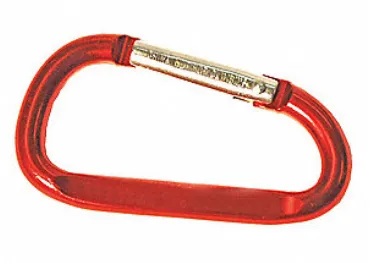Embracing Change: Overcoming Stress and Finding Balance Through Organization
Change is inevitable. Seasons shift, schedules evolve, and life introduces challenges and surprises—some welcome, others not. Whether it’s the arrival of fall or a major life event like job loss, a new baby, divorce, or even the death of a loved one, change brings with it a whirlwind of emotions. Anxiety, stress, and even grief can weigh us down, leaving us disoriented and overwhelmed.
But here’s the truth: you can overcome the chaos of change. With intention and organization, you can navigate transitions, lighten your load, and move forward with clarity and confidence.
The Weight of Change: Why It Feels Overwhelming
Imagine life as a river, and you’re floating downstream in your own personal tube. Attached to you is a vest covered in carabiners, each holding a “clip” that represents something in your life—jobs, relationships, belongings, feelings, and responsibilities.

As life progresses, clips get added: a new job, a promotion, a child starting soccer, or even joyful additions like buying a house or a jet ski. But without consciously removing clips that no longer serve you, the vest becomes unbearably heavy. Over time, the weight of these clips—good or bad—can pull you under, making it hard to stay afloat, let alone thrive.
This is where intentionality and organization come in. To keep moving down life’s river and make room for the opportunities ahead, you must learn to unclip what’s weighing you down.
How to Lighten the Load
The key to managing change is knowing what to keep, what to release, and what to set aside for later. Here are actionable strategies to overcome stress and thrive during transitions:
- Acknowledge Your Capacity
Big changes require energy. If you’re juggling too many commitments, scale back. Identify responsibilities you can clip onto the “Not Now, Maybe Later” wire—a mental place to temporarily set aside tasks or goals you’ll revisit when the time is right. - Focus on Energy-Giving Clips
Balance your responsibilities with activities that replenish your emotional and psychological energy. Make room for joy, creativity, and connection. - Stop Comparing Your Vest to Others’
Society often glamorizes people who seem to handle overflowing schedules with ease. But everyone’s capacity is different. Stay in your own lane—mind your own vest. - Take a Long-Term View
Decisions made in the heat of stress can have long-term consequences. Pause and ask: “How will this choice affect me a year from now?” Instead of rushing to fill a void, explore temporary solutions that align with your future goals. - Honor Your Grief
Even positive changes can involve loss, and it’s okay to feel sadness. Carry grief gently, and when you’re ready, let it go. - Reframe Your Perspective
How you think about change impacts how you experience it. Shift your mindset with these questions:- What is the opportunity in this change?
- What can I learn or gain from this experience?
- How can I show courage in navigating this transition?
- Seek Support
If the weight of change feels too heavy, don’t go it alone. Friends, family, or a professional organizer can provide the perspective and encouragement you need. Sometimes, a fresh set of eyes can help you evaluate which clips to release. - Be Intentional About Letting Go
Adding responsibilities is effortless; letting go requires intention. Whether it’s releasing belongings, forgiving someone, reducing commitments, or adjusting expectations, unclipping is essential to moving forward.
The River of Life: Keep Floating Toward Your Future
Here’s the thing: life doesn’t wait upstream. The good things—the opportunities, growth, and joy—are waiting for you downstream. But to reach them, you need to keep moving.
Imagine a future where your vest is lighter, your mind clearer, and your heart more open to new experiences. By removing the weight of unnecessary clips and creating space for what truly matters, you position yourself to thrive through life’s changes.

Take the First Step Toward a Lighter Life
Today is the day to take charge of your river.
- What clips can you let go of?
- Which ones belong on the “Not Now, Maybe Later” wire?
- How can you shift your perspective and embrace the opportunities in change?
Change doesn’t have to overwhelm you. With focus, intention, and the courage to unclip what no longer serves you, you can overcome anxiety and stress, navigate transitions, and create space for the life you deserve.
Start today—lighten your vest and keep floating toward the amazing future that’s waiting for you.
You do have some control over how you experience the change. Our experience is 99% perception and 1% reality. Remember, even the hardest changes can bring new life and opportunities. Make sure you take off those clips to keep floating down the river to find them.








